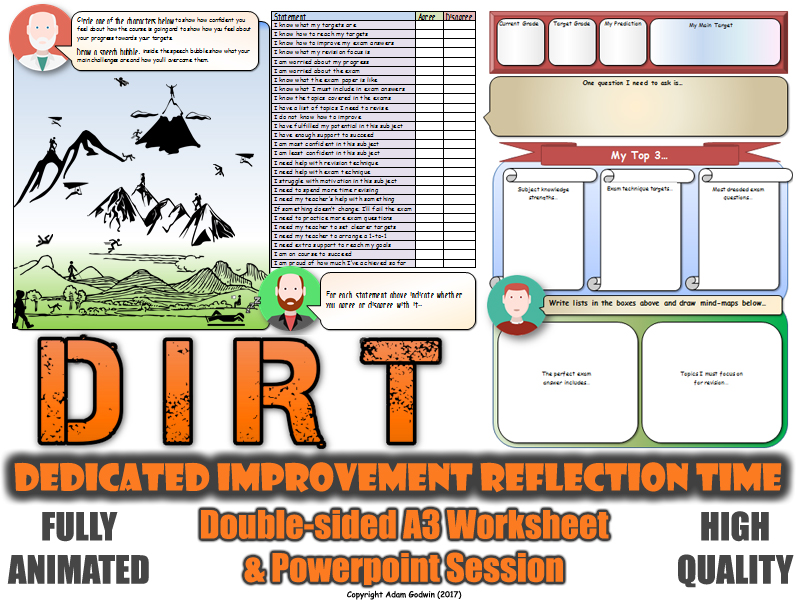Religion, Philosophy, Sociology & Ethics Resource Base
Resources for Religious Studies, Sociology, Philosophy, Ethics and Humanities. We specialise in making whole units and courses for ultimate convenience and time-saving. We always aim to make the best resource for a given topic: our goal is perfection and our resources have helped educate 1 million+ students! In order to encourage ratings and reviews, if you buy any of our products, are happy with your purchase, and leave a 5* rating for it: just email us and we'll send you a free bonus gift!

![12 Mark Question Feedback Sheet - AQA GCSE Sociology [ 8192 ] - PEER SELF MAF Assessment DIRT Target](https://d1e4pidl3fu268.cloudfront.net/daf5ed73-1894-469d-aa9b-155a6f686d73/12MARKFEEDBACKSHEETGCSESOCIOLGOY.crop_960x717_0,0.preview.jpg)

![Video Learning Session - The Sociology of Education L20/20 [ AQA GCSE Sociology - 8192] Documentary](https://d1e4pidl3fu268.cloudfront.net/317493e9-9251-4a2a-9958-6f09a6cb23ad/VideoCoverEducation.crop_700x523_0%2C0.preview.jpg)
![Interactionist Views - Sociology of Family L17/20 [ AQA GCSE Sociology - 8192] Interactionism](https://d1e4pidl3fu268.cloudfront.net/2b67d98b-d446-4bf2-b13e-54f86150b575/Cover.crop_700x523_0%2C0.preview.jpg)
![Essential Researchers - Sociology of Family L18/20 [ AQA GCSE Sociology - 8192] Evidence Research](https://d1e4pidl3fu268.cloudfront.net/8b544f3d-d1d1-417a-ab87-d917ccdd98df/Cover.crop_700x523_0%2C0.preview.jpg)
![New Research, Evidence & Statistics - Sociology of Family L19/20 [ AQA GCSE Sociology - 8192] AO3](https://d1e4pidl3fu268.cloudfront.net/b8f3ede6-e3bb-4e04-a983-c4761f4ab6b9/Cover.crop_700x523_0%2C0.preview.jpg)

![The Metacognitive Thunk Generator (Philosophical Questions, P4C, Metacognition Tool - 20/20]](https://d1e4pidl3fu268.cloudfront.net/44565a5e-6f92-44a7-9587-176ddf13a386/Slide20.crop_958x720_0,0.preview.JPG)
![Motivational Reflection Sessions [Metacognition Tool - 17/20]](https://d1e4pidl3fu268.cloudfront.net/4321f4d5-0bb4-4b9a-97f3-b53c1f862cb4/Slide17.crop_958x720_0,0.preview.JPG)

![GCSE - Buddhism -Lesson 4 [The First of The Four Noble Truths & 3 types of suffering] "Outstanding"](https://d1e4pidl3fu268.cloudfront.net/eb41bef0-7211-4db0-a62a-d79da6b0285e/Lesson4.jpg)
!['The Secret' - A Weird Homework Task [Independent Learning, Internet Research, P4C, G&T]](https://dryuc24b85zbr.cloudfront.net/tes/resources/11422282/image?width=500&height=500&version=1712842402266)
![A2 AQA Philosophy 13 x Revision Sessions [Complete Set for Every Section of A2 Content!] Metaphysics of God & Metaphysics of Mind](https://d1e4pidl3fu268.cloudfront.net/78ceee1e-1137-426f-aea3-065c670e1021/CoverBundle.crop_957x720_0,0.preview.jpg)

![Family Forms - Alternative Forms of Family L4/20 [ AQA GCSE Sociology - 8192] Rapoport](https://d1e4pidl3fu268.cloudfront.net/0e248f23-5232-4cb9-a1c1-861b01e87dbb/ADVERTTEMPLATEFORLESSONS.jpg)
![Video Learning Session - FAMILY - L20/20 [ [WJEC EDUQAS GCSE Sociology]](https://d1e4pidl3fu268.cloudfront.net/c02723cf-c50c-4e47-a596-060997c14f53/VideoCoverFamily.jpg)
![Interactionist Views - Family - L17/20 [ WJEC EDUQAS GCSE Sociology] Families KS4 New](https://d1e4pidl3fu268.cloudfront.net/0a367bd1-a689-4789-bf3b-3862155da7d3/Cover.jpg)
![Zaretsky, Delphy and Leonard - Criticisms of the Family (II)- L11/20 [ WJEC EDUQAS GCSE Sociology ]](https://d1e4pidl3fu268.cloudfront.net/1d281e02-c28b-4ae3-82f1-5ebf90f4b6ab/Cover.jpg)
![Divorce (I) - Sociology of Families - L12/20 [ WJEC EDUQAS GCSE Sociology ] Trends & Changes (NEW)](https://d1e4pidl3fu268.cloudfront.net/f9238c05-4aff-4ce3-984c-11575444f0d4/Cover.jpg)

![Criticisms of the Family - Sociology of Family - L10/20 [ AQA GCSE Sociology - 8192] Dysfunction KS4](https://d1e4pidl3fu268.cloudfront.net/f88c1d94-fdd7-487e-96a3-bf0676c875c8/Cover.jpg)